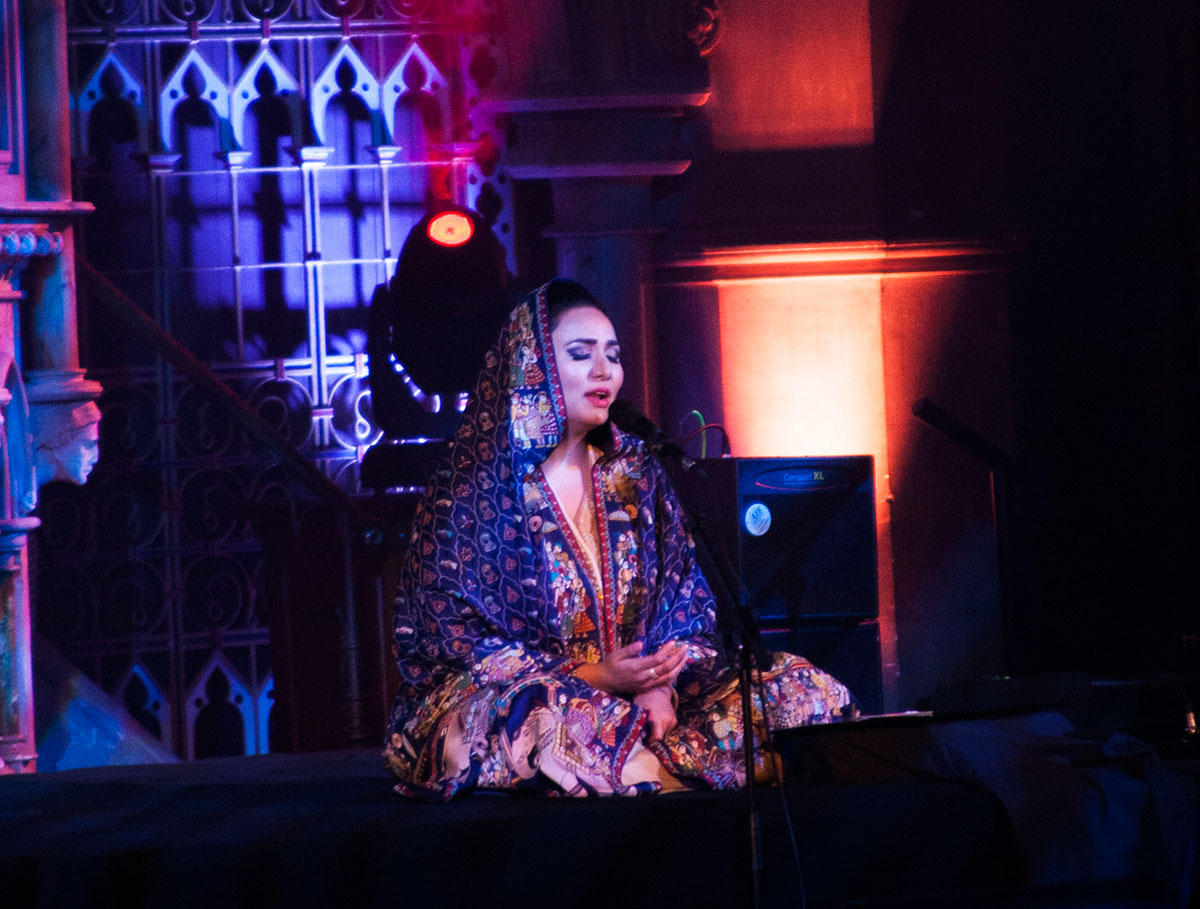
This month I have been reflecting on what it means to be a creative practitioner who is often labelled as an ‘Asian artist’ or a ‘Sikh musician’. I am, of course, both those things. Yet, I am also keen to be recognised outside the spheres of purely ‘Asian’ or ‘Sikh’ music. In the last month I received an invite to sing my kirtan derived compositions on BBC London rather than BBC Asian Network, the latter of which I have been invited to many times. I’m so grateful to BBC Asian Network for their support and hope to continue to appear on their airwaves. Yet it is also a great encouragement that my music will experience a further, more diverse audience reach via broadcast on the mainstream channel BBC London. I would like my music to reach as many and as broad a body of people across the world as is humanly possible. Though Kirtan is derived from the Sikh holy shabbads (or scripture), the proverbs are universal in their meaning and message of love and respect. Sikhism is best considered as a philosophy rather than a religion and is at its core a non-denominational practice. We can all share and learn from one another and opening up the hemmed-in parameters of the contemporary music industry is a great way to start the conversation.
Currently I’m working on an EP with UK-based producing duo TigerStyle and this month I travelled to London to record for this project. We are joined on the album by influential Scottish musician James Yorkston on guitar. The whole concept of this short-form album is to explore the multi-faith origins of the Sikh holy scriptures. Three of the four tracks take from text written by Islamic scholars whose words are included in the Sikh holy scriptures. At a time of such division, I think it’s important to highlight the shared roots of the world’s religions and to remember Guru Nanak’s first ever written lesson, ‘Ek Ongar’ meaning ‘One God’. Achieving and understanding oneness is to be at peace.
With every success and small step ahead in my career, I am constantly reminded of the hardships felt by those families in rural Punjab who are supported by my charity Kirtan For Causes. This month I was pleased to be approached by an Indian organisation called Binti. The non-profit’s motto is ‘Every girl deserves dignity’. Their aim is to create affordable sanitary towels and to raise awareness of the menstrual cycle across Indian society. As soon as they explained their work to me, I was keen to work with them. Approaching daily life without access to suitable sanitary products during your period must be stressful indeed. Not to mention, the adverse effects this situation can have for young women enrolled in education. We know that absenteeism in school-age females corresponds with monthly menstrual cycles as students often opt to stay at home during their periods. For my part, I have now made sure free sanitary towels are in stock at the Kirtan For Causes offices in the rural Punjab region that we support. I have also authored and recording a poem called ‘Period’ on the issue, which I will be releasing soon on my YouTube channel. I am working to develop a close working relationship with Binti and look forward to receiving their advice on further steps we can take in rural Punjabi communities to distribute practical tools and expand knowledge of menstruation.
Waheguru Ji
